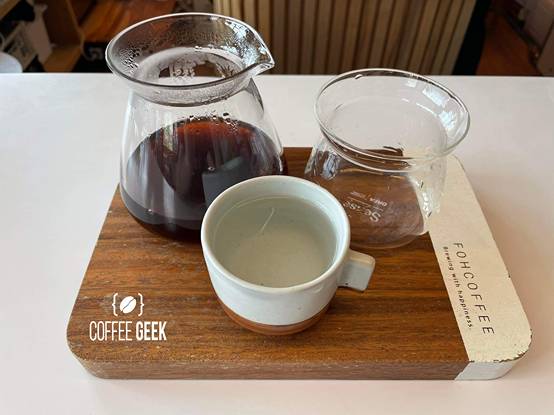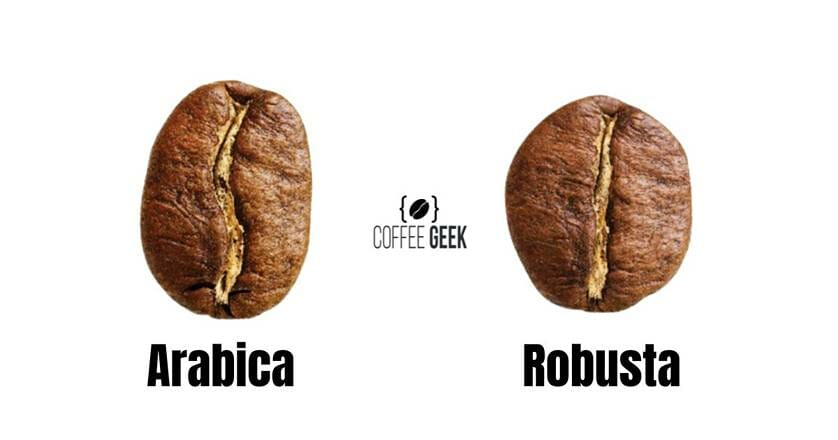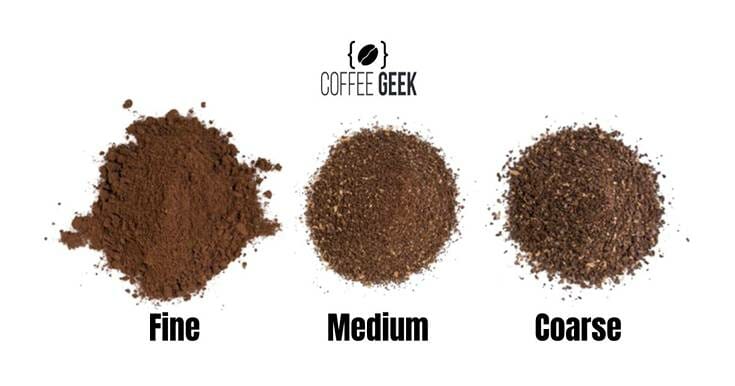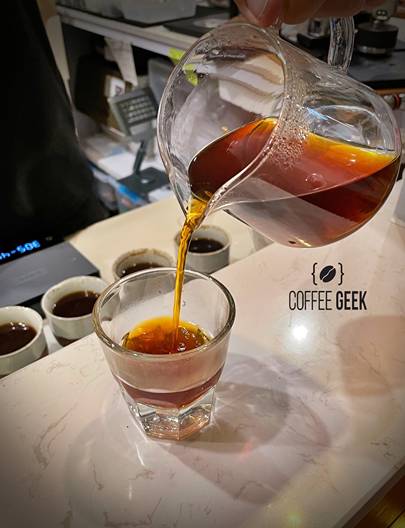As a coffee enthusiast, I’ve often been asked, “What does black coffee taste like?”
The answer isn’t as simple as a one-size-fits-all description, because the taste of black coffee is complex and varies depending on factors such as bean type, roast, and brewing method.
In this article, we’ll explore the diverse taste profiles one can experience when drinking black coffee and how to appreciate its unique flavors.
Upon first sip, black coffee may be slightly bitter and creamy.
However, as your palate becomes more attuned to its subtleties, you’ll begin to notice subtle notes of fruit, chocolate, and even caramel.
These flavors can change depending on the origin of the beans, the roast, and your preferred brewing method, making each cup of black coffee a unique experience waiting to be discovered.
Key Takeaways
- Black coffee’s taste varies depending on the bean type, roast, and brewing method.
- Developing an appreciation for black coffee involves recognizing its subtle flavor notes.
- Quality beans and optimized brewing can greatly enhance your black coffee experience.
Black Coffee Basics
What Is Black Coffee
As a coffee aficionado, I enjoy exploring the various flavors and nuances that coffee has to offer.
One of the simplest forms of coffee is black coffee, which is coffee without any added milk, cream, or sugar.
I find that drinking black coffee allows me to fully experience the natural flavors, acidity, and bitterness of the coffee beans.
The taste of black coffee can vary greatly depending on factors such as the roast level, bean origin, and brewing method.

How Black Coffee Differs from Regular Coffee
When I talk about regular coffee, I usually refer to coffee that has been mixed with milk, cream or sugar to suit the individual’s taste preferences.
These additions to the coffee can sometimes mask the original flavors of the coffee beans, while black coffee allows those flavors to shine through.
In my experience, black coffee has a more pronounced bitterness, makes coffee bitter and acidic compared to regular coffee, giving it a bolder flavor profile.
Black Coffee Brewing Methods
There are several brewing methods that I’ve tried and found helpful in creating the perfect cup of black coffee.

Here are my top recommendations:
- French Press: This method involves steeping coarse coffee grounds in hot water and then pressing down a plunger to separate the brewed coffee from the grounds. I like the French press because it produces a full-bodied black coffee with a rich flavor.
- Drip: The drip method involves hot water passing through a filter filled with coffee grounds, slowly dripping into a carafe or cup below. This is the most common method for making black coffee at home because it’s easy and convenient. I find that drip coffee tends to have a cleaner taste, but can sometimes lack the body and depth of other methods.
- Espresso Machine: Espresso machines force hot water through finely-ground coffee under high pressure, creating a concentrated shot of black coffee. Espresso can be enjoyed on its own or used as a base for other coffee beverages. I appreciate the intense and bold flavor of espresso, and it’s especially enjoyable when I’m craving a stronger black coffee.
By experimenting with these different brewing methods, I’ve been able to fine-tune my black coffee experience to suit my taste preferences and enjoy the many flavors this simple beverage has to offer.
The Flavor Profile
Influence of Roast Level
When I prepare my black coffee, I notice that the roast level plays a significant role in shaping the taste.
For example, a lighter roasts often has a brighter acidity and more pronounced fruity or floral flavors, whereas a darker roast tends to have deeper, bolder flavors like chocolate, caramel, or even smoky notes.
The roasting process develops the flavor profile of the beans by breaking down the compounds in them and releasing aromatic oils.
So, it is essential to consider the roast level when brewing black coffee to tune in to the taste that I like the most.
What Does Black Coffee Taste Like? Factors Affecting Taste
There are several factors that contribute to the taste of black coffee.
Some of them are:
- Bean type: Different beans have different flavor profiles. For instance, Ethiopian or Kenyan coffee beans are typically fruity and syrupy, while Costa Rican and Guatemalan beans produce a more soft and mellow taste. It is crucial to pick the beans that cater to my taste preferences.
- Freshness: The freshness of the beans influences the taste of the brewed coffee. It is vital to store my beans properly and grind them just before brewing to ensure maximum flavor and aroma extraction.
- Brewing method: Choosing the right brewing method can also have an impact on the taste of the coffee. For example, a pour-over technique can result in a cleaner and crisper taste, while using a French press can produce a more robust and bold taste.
Comparing Light, Medium, and Dark Roasts

To understand how the roast level affects the taste of black coffee, let me compare light, medium, and dark roasts:
- Light Roast: Light roasts have a light brown color, with more acidity and a pronounced tartness. They often showcase fruity and citrus flavors, offering a more delicate and nuanced taste experience.
- Medium Roast: Medium roasts showcase a balanced flavor profile, with a nice harmony between the acidity and body. The taste can include notes of chocolate, caramel, and spices, while still retaining some herbal or fruity undertones.
- Dark Roast: Dark roasts have a bold and robust flavor, with much less acidity. The coffee’s taste leans more toward the roasty, smoky, or chocolaty side due to the beans’ longer roasting time, which allows oils to develop and bring out those deeper notes.
When it comes to black coffee, finding the right combination of roast level, bean type, and brewing method is key to unlocking the perfect taste profile for my personal preferences.
Experimenting with these factors can genuinely enhance my experience of enjoying a delicious black coffee.
Taste Enhancements
As a coffee lover, I often like to explore different ways to enhance the taste of my black coffee.
In this section, I’ll share some of my favorite methods for making black coffee taste even better, including using sweeteners, adding creamers, and pairing with food.
Using Sweeteners
I find that adding a little sweetness to black coffee can sometimes make all the difference.
There are several options to choose from, depending on personal preference and dietary needs:
- Sugar: This classic sweetener works well, but I try to use it sparingly to avoid adding too many empty calories to my coffee.
- Honey: I love using honey as a natural sweetener, as it adds a unique flavor profile to my black coffee.
- Stevia: For those looking to cut back on sugar, stevia is a great option. It’s derived from a plant, so it’s a natural alternative that doesn’t have the same impact on blood sugar as refined sugars do.
Adding Creamers
While I usually drink my coffee black, sometimes I enjoy the richness that creamers can add to my coffee.
Here are some options that I find work well:
- Milk: Adding a splash of milk provides a subtle creaminess to black coffee without adding too much fat or calories.
- Cream: For a more indulgent treat, I’ll occasionally add a small amount, little cream to my coffee. This gives it a rich, velvety texture that’s hard to resist.
- Nuts & nut-based creamers: For those who are lactose intolerant or prefer non-dairy options, I find that nut-based creamers – such as almond or cashew milk – can add a lovely creaminess to black coffee without the need for dairy.
Pairing with Food
Finally, I find that pairing black coffee with certain foods can also enhance its taste:
- Pastries: The combination of a strong black coffee with a sweet pastry can be heavenly. It’s the perfect balance between bitter and sweet.
- Chocolate: I adore tasting a piece of dark chocolate alongside my black coffee. The bitterness of both enhances each other’s flavors tremendously.
- Nuts: Sometimes, I’ll simply enjoy a handful of nuts with my black coffee. The natural oils and flavors found in nuts can complement the taste of the coffee, adding a subtle layer of depth to the experience.
By trying out various sweeteners, creamers, and food pairings, I’ve found that there are endless possibilities when it comes to enhancing the taste of black coffee.
Feel free to experiment and find the combinations that work best for your taste buds!
Health Benefits and Considerations
Caffeine Content and Alertness
As a fan of black coffee, I’ve experienced firsthand the benefits it offers when it comes to alertness and energy. The primary reason for this is, of course, its caffeine content.
Caffeine is a natural stimulant that can help improve mental acuity and focus, making it a popular choice to kickstart the day.
It’s worth noting, though, that the caffeine levels can vary depending on the type of bean and roast.
Typically, light roasts contain slightly more caffeine than their darker counterparts.
Calorie Count and Weight Loss
One of the reasons I prefer black coffee over other beverages is its low calorie count.
A standard cup of black coffee has essentially zero calories, making it an ideal choice for those watching their caloric intake.
This is particularly useful for people trying to lose weight, as replacing sugary or calorie-laden drinks with black coffee can help reduce overall daily calorie consumption.
Antioxidants and Disease Prevention
I’ve also found that black coffee is a great source of antioxidants, which play a crucial role in preventing various diseases.
For instance, antioxidants help combat inflammation and neutralize harmful free radicals, reducing the risk of developing illnesses such as heart disease and certain types of cancer.
Despite its bitterness – which can be an acquired taste – I love how black coffee offers so many health benefits without adding any extra, unwanted calories.
It’s always worth remembering, though, that moderation is key, as excessive caffeine consumption can lead to some adverse effects.
So, the next time you enjoy a cup of black coffee, know that you’re also giving your body a valuable boost in more ways than one.
Choosing Quality Beans
As a coffee lover, I know the importance of selecting the right beans for my black coffee.
In this section, I’ll share my insights on how to choose quality beans, focusing on differentiating between Arabica and Robusta, understanding the impact of the country of origin, and picking the best beans from coffee shops or grocery stores.
Arabica vs Robusta Beans

When it comes to black coffee, there are two primary types of beans to consider: Arabica and Robusta.
From my experience, Arabica beans have a smoother, more acidic taste and tend to be less bitter than Robusta beans.
They’re also known for their pleasant flavor notes that include sweet-floral, chocolatey, and nutty flavors, making them a popular choice among black coffee drinkers like myself.
On the other hand, Robusta beans are often more bitter, but they can add a strong and bold flavor to your coffee. Choosing between the two primarily depends on your flavor preferences.
Read more on Arabica Vs Robusta here.
Country of Origin
Another crucial aspect to consider when picking coffee beans is the country of origin.
Different regions have unique flavor profiles and nuances that can significantly influence the taste of black coffee.
For example, Ethiopian coffee is known for its floral and fruity notes, while Kenya offers bright and acidic flavors with a hint of berries.
Personally, I love exploring various regions and experimenting with coffee from different countries to find my perfect black coffee taste.
Selecting Beans from Coffee Shops or Grocery Stores
Lastly, I always pay attention to the coffee shop where I buy my coffee beans, as this can make a significant difference in quality.
When I shop at coffee shops, I look for whole beans that have been recently roasted and ask the baristas for their recommendations, as they usually have a vast knowledge of the beans they sell.
Conversely, when shopping at grocery stores, I check the roast date on the packaging and choose bags with unbroken seals to ensure freshness.
I prefer buying whole beans and grinding them at home, as pre-ground coffee can lose some of its nutrients and flavors more quickly.
Additionally, selecting a coffee roast that matches your taste preferences, whether it’s light, medium, or dark, can greatly enhance the enjoyment of your black coffee.
By keeping these factors in mind, I’ve been able to consistently enjoy a delicious cup of black coffee that aligns with my taste preferences and never disappoints.
Optimizing Your Brew
Grind Size and Brewing Method
In my quest for the perfect cup of black coffee, I discovered that grind size is crucial for a balanced taste. Different brewing methods call for different grind sizes.
For instance, a fine grind is needed for espresso, while a medium grind works best for drip coffee.
Experimenting with different grind sizes helped me find the right match for my preferred brewing method.

Here’s a brief guide to grind sizes for some popular methods:
- Espresso: Fine grind
- Drip coffee: Medium grind
- French press: Coarse grind
Water Quality and Temperature
The water I use has a significant impact on my coffee’s taste. For the best results, I always use cool, soft water with low mineral content.
Hard water can affect extraction and result in an off-tasting brew. I also pay close attention to the brewing temperature.
Generally, I aim for water between 195-205°F (90-96°C) to ensure a consistent and enjoyable coffee.
Freshness and Storage of Coffee Beans
Another important factor in making a great cup of black coffee is the freshness of the beans. I prefer to buy medium-dark roasts, as they offer a balanced flavor with hints of sweetness.
To keep my beans fresh, I store them in a cool, dry place away from direct sunlight and heat. It’s best to use the beans within a few weeks of purchase to ensure maximum flavor.
In general, I found that attention to grind size, water quality, temperature, and the freshness of my coffee beans made all the difference in creating a delicious black coffee.
By fine-tuning these factors, I’m able to start my day with a perfect cup of joe, every time!
Creative Variations
As someone who loves to drink black coffee, I enjoy exploring different ways to enjoy it.
In this section, I’ll share my favorite creative variations, including cold brew and iced coffee, flavored coffees, and delicious breakfast pairings.
Cold Brew and Iced Coffee
When it comes to chilled black coffee, I’ve found that cold brew and iced coffee offer unique flavor experiences.
Cold brew, made by steeping fresh grounds of coffee in cold water for an extended period, tends to have a smoother, less acidic taste compared to hot-brewed.
This brewing method allows for more prominent flavor notes like caramel and dark chocolate to shine through.
Iced coffee, prepared by pouring hot brewed coffee over ice, usually has the same tasting notes as the hot version.
In my experience, I’ve noticed the chilling process can sometimes heighten the natural fruit or wine-like flavors in certain coffee beans, making it an exciting alternative to my usual hot cup.
Flavored Coffees
Every once in a while, I like to experiment with flavored coffee black to spice up my daily routine.
Natural flavor variations such as a medium-dark roast with hints of wine or a fruity Ethiopian coffee provide a refreshing change from the usual.
Topping off a freshly brewed cup with a bit of whipped cream adds a touch of indulgence while still preserving those unique flavor notes.
Breakfast Pairings
Finding the perfect breakfast pairing can enhance my overall black coffee experience.
In the mornings, I enjoy pairing a cup of rich, dark coffee with a slice of buttery toast or a chocolate chip muffin, which complements those deep, rich flavor profiles.
On the other hand, if my coffee has more fruity or wine-like notes, a bowl of fresh berries or yogurt can create a delightful contrast.
At the end of the day, there are endless ways to enjoy black coffee.
It’s exciting to experiment with different brewing methods, flavors, and pairings, making every day a unique experience!
Frequently Asked Questions
What are the common taste elements in black coffee?
As a black coffee drinker myself, I often find that it has a bitter taste, sometimes with sweet or fruity notes depending on the coffee beans used. Black coffee can also have a complex flavor profile, with hints of chocolate, nuts, and spices.
How does the taste of black coffee differ from sweetened coffee?
When I drink black coffee, I notice a more robust and intense flavor compared to sweetened coffee. Sweetened coffee often masks the natural flavors and characteristics of the coffee beans with the addition of sugar or other sweeteners and creams. Coffee black allows me to appreciate the unique qualities of each coffee bean more fully.
Why do some people prefer the taste of black coffee?
Some folks like me prefer to drink black coffee because it provides a more authentic taste of the coffee beans without any added sweeteners or creams. Additionally, black coffee offers potential health benefits, such as a lower calorie count and a richer source of antioxidants.
Can the bitterness of black coffee be lessened without sweeteners?
Yes, the bitterness of drinking coffee black can be lessened without sweeteners. One method I use is brewing coffee with a coarser grind, which can reduce the extraction of bitter compounds. Another option is to try different brewing techniques, such as cold brewing or using a French press, which can produce a smoother and less bitter cup of coffee.
What factors affect the taste of black coffee?
Several factors can impact the taste of black coffee, including the origin and quality of coffee beans, the roast level, and the brewing method. For instance, the roast level significantly influences the flavor profile, with darker roasts typically exhibiting more bitterness and a stronger flavor.
Is there a difference in taste between light and dark-roasted black coffee?
Yes, there is a noticeable difference in taste between light and dark-roasted black coffee. In my experience, light roasts tend to offer more delicate and nuanced flavors, with fruity, floral, or acidic notes shining through. On the other hand, dark roasts impart a more intense, bold, and bitter taste, sometimes with a hint of smokiness or a burnt undertone.


